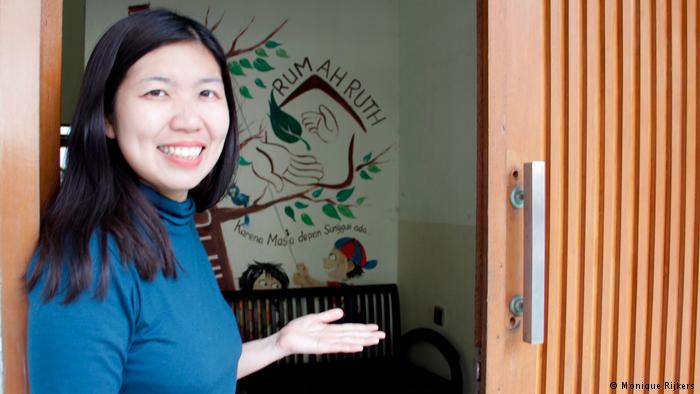Women’s day special: Indonesia
 Last January, I heard that a female student who jumped off a running bus in Jakarta and died because she was being harassed and the bus driver refused to stop the vehicle. It reminded me of so many other stories about rape in public transportation. The victims vary from students and career women to housewives. But is a ‘wrong mentality’ to blame in this case?
Last January, I heard that a female student who jumped off a running bus in Jakarta and died because she was being harassed and the bus driver refused to stop the vehicle. It reminded me of so many other stories about rape in public transportation. The victims vary from students and career women to housewives. But is a ‘wrong mentality’ to blame in this case?
I guess Jakarta is still not a safe environment for women. It doesn’t matter what their jobs are or what kind of clothes they’re wearing. In terms of safety, Indonesian women are fragile. But I think everyone deserves the right to feel safe in their own city, in their own country.
Rape and violence towards women do not only take place in public transportation, but also in the office, on the street, at universities and sometimes even at home. I remember a few years ago, a student was raped by her own professor. There are many cases of domestic helpers being raped and not so long ago, there was a story about a husband who ‘sold’ his wife for money.
Other kinds of violence are also happening all the time. A good friend of mine once told me about her father and brother who like to hit her sisters. My other friend is being hit by her boyfriend, she is intimidated, he forbids her to do things that she likes. Another friend suffers because her husband wants tp practice polygamy and marries a second woman. Since the second marriage, she has not got any financial support from her husband and she is a housewife with no income.
What concerns me is that all those cases show that it is not only about the “bad person/criminal”. There is something wrong with the way of thinking or the mentality in our society. This “wrong way of thinking” has been strengthened by controversial statements from our government officers regarding the violence cases towards women:
“You can not wear a mini skirt when you’re taking a bus. It’s not suitable.” (Fauzi Bowo, former governor of Jakarta)
“Some women lied and said they were being raped, when actually it was a mutual thing.” (M. Nuh, minister of education and culture)
“The rapist and the victim both enjoy the act. So, we have to include this thought if we want to pursue a death penalty.” (Daming Sunusi, candidate for the Supreme Court of Banjarmasin)
Those three statements mirror the way our government people think. They belittle rape cases and at the same time also blame the victims, in these cases, women. All that I’m hearing is that women have to dress a certain way, to act a certain way, to talk a certain way and so on. Women are responsible for themselves. But in the majority of rape cases in Indonesia, the rapists are men. Men are supposed to be taught how to respect women and are not to be allowed to rape with any excuse.
Another thing that bothers me is how women react when they are victims. How many women who are being sexually harassed in public transportation choose to be silent instead of screaming because they are embarrassed? Or how many female victims choose to go straight home, take a shower, and remain silent instead of reporting it to the police? And the worst is, the victims are the ones who feel that they did something wrong.
This is result of the way we are taught to think in Indonesian society. Women are obliged to “take care of themselves”. But we somehow forgot to teach women that she owns the right to her body, she owns the right to feel safe and the rapist should be disgraced, not the victims.
Rape and violence towards women can not be solved through new policies or laws. We have to start in changing the way our society thinks. We also need to assess where Indonesian women stand in society. We have to change our mentality and we have to start by doing it ourselves.
Author: Dinda Nuurannisaa Yura/VLZ
Editor: Manasi Gopalakrishnan
Dinda Nuurannisaa Yura, 25-years-old, is a women’s activist and a defender for migrant rights. She works for the organization Solidaritas Perempuan (Women’s Solidarity) in Indonesia.






